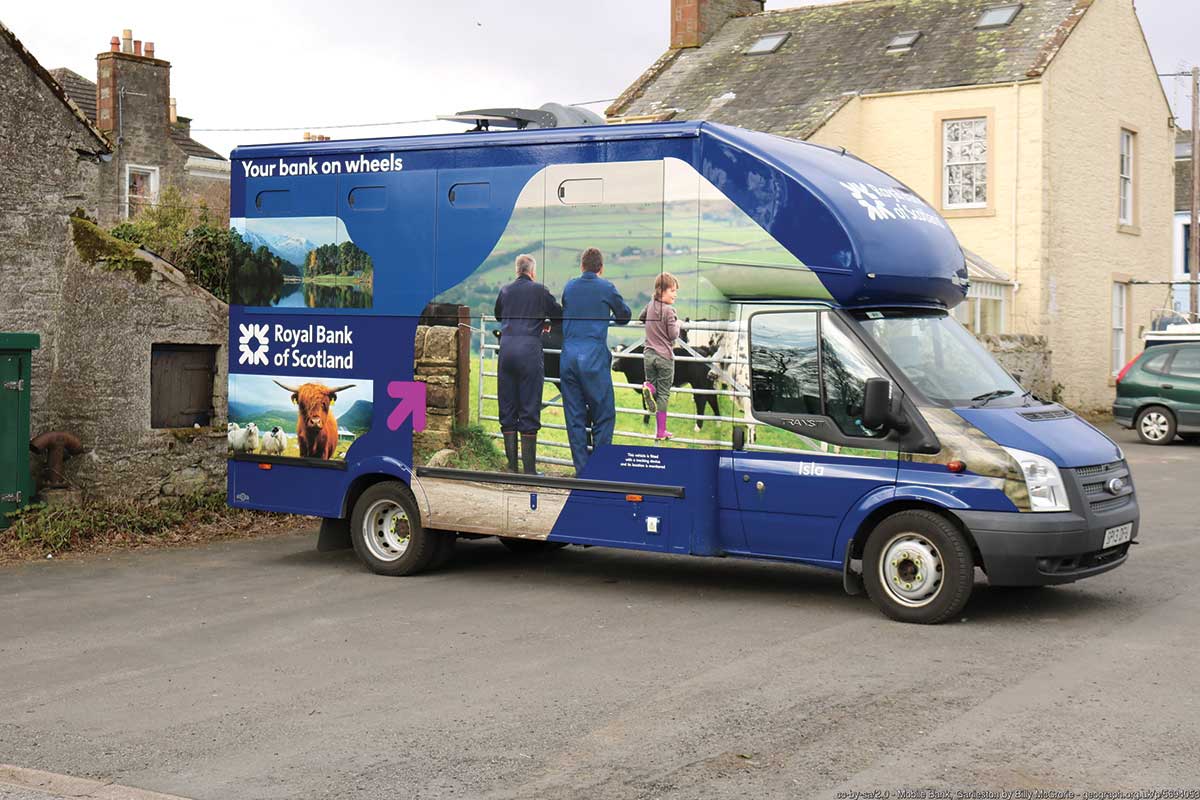Written by Jesse Scheckner on January 29, 2019

A business model that transformed part of the restaurant industry could soon be used by financial institutions to reach out-of-the-way and underserved Miami-Dade residents, as lawmakers are looking at changing zoning strictures to allow for banks on wheels.
Commissioners last week forwarded to a Feb. 2 hearing a proposed ordinance change that would allow mobile banking vehicles, or “bankmobiles,” to operate on county streets.
According to a 2017 survey by the Federal Deposit Insurance Corp. (FDIC), about 14 million American households don’t have a bank account.
In Florida, about 6% have no bank accounts and 18.3% are “under-banked,” meaning they have bank accounts but rely on payday lenders or other alternatives that “charge significantly – sometimes exorbitantly – more for financial services,” a memo accompanying the ordinance states.
In South Florida, the FDIC estimated, 8% of households have no bank accounts and 17.6% are under-banked.
“[It] would improve the health, safety and welfare of county residents to encourage greater availability of federally insured depository institutions to unbanked and under-banked households, so that those households may reduce their reliance on more expensive alternative financial solutions,” the items states.
Miami-Dade’s zoning code permits some mobile sales and food services operations, commonly referred to as “food trucks,” in certain commercial, industrial and urban districts, as well as at museums, hospitals, schools and religious facilities.
The amendment would allow bankmobiles to be held to the same standards as those businesses.
Current restrictions include that mobile sales and food services only operate as businesses between 7 a.m. and 10 p.m. weekdays and until 11 p.m. weekends.
They must adhere to strict parking guidelines, occupy a total vending area of no more than 600 square feet and restrict signage to the authorized vending area, and they cannot operate on vacant or unimproved properties unless otherwise approved.
Alcohol sales and use of loud speakers is prohibited.
Banks on wheels may seem like a new phenomenon, but their modern iteration has existed since at least the 1940s, according to the Royal Bank of Scotland, which runs such services today.
“The origins of the idea probably are from the Second World War, when army field cash officers administered payment and receipt of money to and from military units and individual soldiers,” the bank’s website states. “The United States [Army] operated some of its pay offices from vans, and it was one of these vehicles, a Studebaker van serving US military personnel posted in Scotland, that the bank bought after the end of the war to convert into a bank on wheels.”
Today, banks worldwide have wheeled banking operations, with stateside mobile ATMs and bankmobiles used by companies including Visa, Citibank, Wells Fargo, SunTrust, Chase, IBC Bank, Navy Federal Credit Union and many local or regional financial institutions.
But their operation amid a decline in brick-and-mortar locations has some taking extra notice.
In December 2017, the BBC published a story titled, “Can ‘banks on wheels’ replace brick-and-mortar?” Last February, the French Press Agency ran a story titled, “Mobile banking now means a bank on a truck.”
And in November, National Public Radio aired a nine-minute report – “All Aboard the Bankmobile!” – telling the story of the Bank of Bird-In-Hand, based in Bird-In-Hand, Pennsylvania, which services Amish customers and others for whom regular trips to the bank are difficult.
https://www.miamitodaynews.com/2019/01/29/lawmakers-look-to-change-zoning-to-allow-banks-on-wheels/

